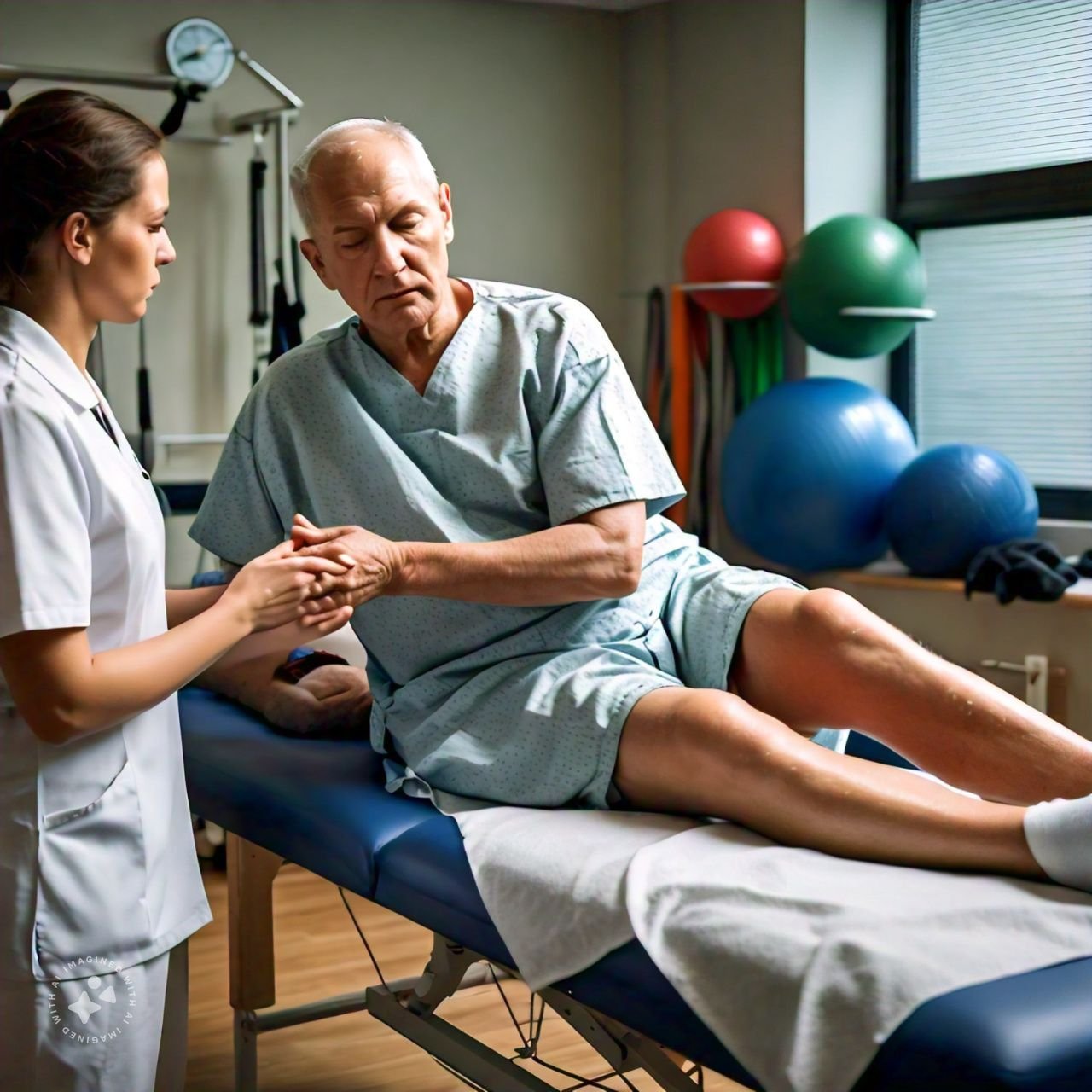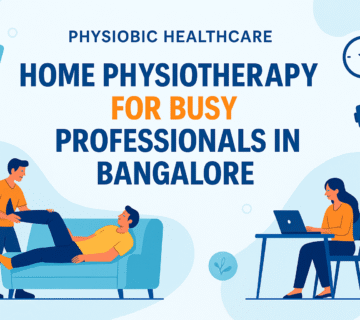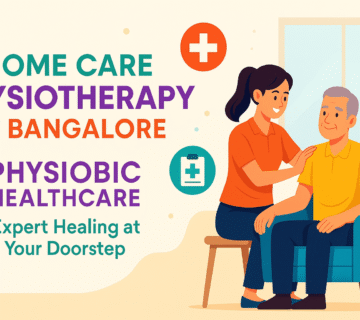Introduction to Exercise Physiotherapy at Home in Bangalore
Exercise physiotherapy is a specialized field dedicated to the assessment, treatment, and prevention of various medical conditions through exercise and rehabilitation techniques. With the advent of telehealth and the increasing demand for home healthcare services, exercise physiotherapy at home has gained significant traction, particularly in urban centers like Bangalore. This article delves into the multifaceted aspects of exercise physiotherapy at home in Bangalore, highlighting its benefits, methodologies, challenges, and future prospects.
Understanding Exercise Physiotherapy at Home in Bangalore
Exercise physiotherapy is grounded in the understanding that structured physical activity can lead to substantial improvements in health and functional outcomes. This approach is critical for individuals dealing with chronic diseases, post-operative recovery, and various musculoskeletal and neurological conditions.
Key Components for Exercise Physiotherapy at Home in Bangalore
- Assessment: A thorough assessment is the cornerstone of effective exercise physiotherapy. This involves evaluating the patient’s medical history, physical capabilities, and specific limitations. Various tools and methods, including physical exams and functional tests, are utilized to gather comprehensive data about the patient’s condition.
- Personalized Exercise Plans: Based on the assessment findings, physiotherapists design tailored exercise programs that cater to the individual’s specific needs, goals, and preferences. These plans may encompass a mix of aerobic, strength, flexibility, and balance exercises, ensuring a well-rounded approach to rehabilitation.
- Monitoring and Progression: Continuous monitoring is essential for tracking the patient’s progress and ensuring safety during exercise. Physiotherapists frequently reassess the individual’s performance and make necessary modifications to the exercise program to facilitate optimal recovery.
- Education: Patient education is integral to the success of exercise physiotherapy. Providing information about the benefits of exercise, self-management strategies, and lifestyle modifications empowers patients to take an active role in their recovery process.
The Need for Home-Based Exercise Physiotherapy in Bangalore
Urban Lifestyle Challenges
Bangalore, often referred to as the Silicon Valley of India, is characterized by a fast-paced lifestyle. The city’s residents frequently grapple with high-stress levels, sedentary jobs, and unhealthy eating habits. Such factors contribute to a rising prevalence of chronic health conditions, including obesity, diabetes, and cardiovascular diseases. Exercise physiotherapy at home offers a practical solution to address these lifestyle-related health issues by facilitating convenient access to rehabilitation services.
Increased Demand Due to COVID-19
The COVID-19 pandemic acted as a catalyst for change in the healthcare landscape. As hospitals and clinics restricted access to minimize infection risks, many patients turned to home-based physiotherapy services. This shift highlighted the necessity for safe, effective rehabilitation options that could be delivered in the comfort of one’s home.
Chronic Disease Prevalence
With chronic diseases on the rise in urban populations, the role of exercise physiotherapy has become increasingly crucial. Research indicates that regular physical activity can help manage and mitigate the effects of these conditions. Home-based physiotherapy provides a flexible and effective means for individuals to engage in regular exercise, thereby improving their health outcomes.
Benefits of Exercise Physiotherapy at Home
Convenience and Accessibility
The convenience of home physiotherapy cannot be overstated. Patients can access care without the burden of travel, which is especially beneficial for those with mobility issues or chronic conditions. This convenience allows for greater adherence to exercise programs, as patients can integrate sessions into their daily routines.
Personalized Care
Home-based physiotherapy enables a highly personalized approach. Physiotherapists can assess the home environment and design exercise programs that align with available resources and the patient’s specific needs. This adaptability fosters a more engaging and relevant rehabilitation experience, increasing the likelihood of compliance.
Cost-Effectiveness
In many cases, home-based physiotherapy can prove more cost-effective than traditional clinic visits. Patients save on transportation costs and the time spent traveling. Moreover, the ability to receive ongoing care without the need for frequent clinic visits can lead to overall savings in healthcare expenses.
Enhanced Recovery
Numerous studies have shown that patients who engage in regular exercise as part of their rehabilitation experience faster recovery times and improved overall health. Home exercise physiotherapy supports this by providing the necessary structure and motivation for patients to remain active.
Methodologies in Exercise Physiotherapy at Home
Telehealth Integration
The integration of telehealth technologies has revolutionized the practice of exercise physiotherapy. Through virtual consultations, physiotherapists can conduct assessments, monitor progress, and offer real-time guidance. This approach is particularly advantageous in Bangalore, where many residents are familiar with digital tools and platforms.
Home Exercise Programs
Home exercise programs (HEPs) form the backbone of home physiotherapy. These programs are tailored to individual needs and may include various types of exercises:
- Aerobic Exercises: Activities like walking, cycling, or dancing aim to enhance cardiovascular fitness. Physiotherapists often recommend exercises that can be easily incorporated into daily routines.
- Strength Training: Resistance exercises using body weight, resistance bands, or household items help build muscle strength. Physiotherapists provide guidance on proper techniques to minimize injury risks.
- Flexibility and Balance Training: Incorporating stretching and balance exercises can improve flexibility and prevent falls. This is particularly important for older adults or individuals recovering from injury.
Regular Follow-Up
Regular follow-ups, whether in-person or via telehealth, are vital for assessing progress and adjusting exercise programs as necessary. These sessions provide opportunities for feedback, encouragement, and reinforcement of the importance of adherence to the rehabilitation plan.
Challenges in Implementing Home-Based Exercise Physiotherapy
Limited Awareness
Despite the growing acceptance of home physiotherapy, many patients remain unaware of its benefits or how to access such services. Comprehensive education and outreach initiatives are crucial for increasing awareness and encouraging utilization.
Compliance and Motivation
While the flexibility of home exercise programs is advantageous, it also requires a level of self-discipline. Patients may find it challenging to stay motivated without the direct supervision of a therapist. Incorporating motivational strategies, such as setting achievable goals and celebrating milestones, can enhance adherence.
Safety Concerns
Safety is a critical consideration in home exercise programs. Patients must be educated on proper techniques and safety precautions to avoid injuries. Physiotherapists play a vital role in providing clear instructions and guidelines to instill confidence in patients regarding their ability to perform exercises safely.
Resource Limitations
Not all patients have access to adequate space or equipment for exercise at home. Physiotherapists need to be creative in designing exercise programs that can be effectively implemented in various living environments. This may involve using common household items or encouraging outdoor activities when feasible.
Future Directions for Exercise Physiotherapy at Home in Bangalore
Research and Evidence-Based Practice
Ongoing research is essential to validate the effectiveness of home-based exercise physiotherapy. Future studies should focus on diverse patient populations and conditions to establish best practices and optimize treatment protocols. Evidence-based approaches will enhance the credibility and acceptance of home physiotherapy.
Integration with Health Systems
Collaboration among exercise physiotherapists, primary care providers, and specialists is crucial for creating a comprehensive approach to patient care. Integrated health systems can facilitate better communication and coordinated care, ultimately leading to improved patient outcomes.
Technological Advancements
Emerging technologies, such as wearable devices and mobile health applications, have the potential to enhance the delivery of home exercise physiotherapy. These tools can track patient progress, provide real-time feedback, and foster a sense of community among patients, which can enhance motivation and engagement.
Community-Based Initiatives
Community outreach programs that promote awareness of exercise physiotherapy and its benefits can help bridge the gap between patients and healthcare providers. Workshops, free assessment camps, and educational seminars can encourage individuals to seek physiotherapy services and engage in regular physical activity.
Conclusion
Exercise physiotherapy at home represents a transformative approach to rehabilitation and health management in Bangalore. With its emphasis on personalized care, convenience, and accessibility, it addresses many barriers faced by patients in traditional healthcare settings. As awareness grows and technology advances, home-based physiotherapy is poised to play a pivotal role in improving health outcomes for the diverse population of Bangalore.
References
- American College of Sports Medicine. (2020). Guidelines for Exercise Testing and Prescription.
- Lamberti, M., & Azzarà, A. (2019). Telehealth and Rehabilitation: A Review of the Literature. International Journal of Physiotherapy, 6(4), 123-130.
- Rimmer, J. H., & Marques, A. (2012). Physical Activity for People with Disabilities: A Public Health Perspective. American Journal of Public Health, 102(10), 2003-2009.
- Rojas, J. A., et al. (2021). Home-Based Exercise Programs for Adults: A Systematic Review. Journal of Rehabilitation Research and Development, 58(2), 157-168.
- World Health Organization. (2021). Global Action Plan on Physical Activity 2018-2030: More Active People for a Healthier World.



